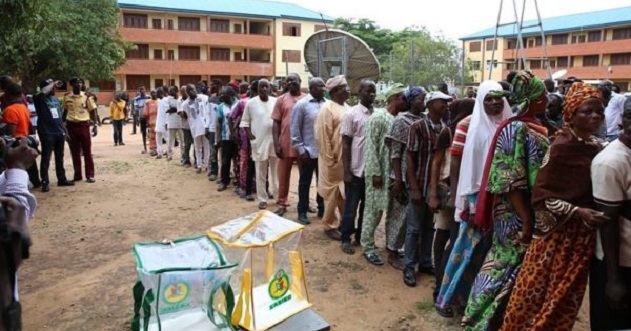Politics
Five takeaways from Nigeria’s presidential, National Assembly elections

As Nigerians went to the polls to elect President Muhammadu Buhari’s successor, and National Assembly members, several factors which are not alien to the country’s electoral system played out.
Expectations were high that the elections would take a different turn owing to Buhari’s repeated promise of giving Nigerians free, and fair elections as he vacates the Aso Rock Villa on May 29, 2023.
Here are five takeaways from the elections.
1. Electoral Violence
Electoral violence was not in short supply at different polling units. In Edo, Kogi, Borno, Rivers, and Lagos states. Lagos especially, witnessed different waves of violence. Reports have it that some polling units in the states, afore-mentioned, were attacked by thugs as electoral officials and voters ran for their lives. Some voters sustained injuries, while ballot boxes with votes cast were scattered and others carted away.
In Dekina Local Government Area (LGA) in Udaba Dekina polling unit of Kogi voting was disrupted after a fight broke out and voters attacked. Hence, ballot papers were torn and voting stopped. It was reported that in Gwoza LGA of Borno State, the hometown of Senator Ali Ndume, suspected Boko Haram terrorists fired Rocket Propelled units into the LGA.
2. Voter intimidation
Voter intimidation is one aspect of electoral anomalies that took centre stage in the elections. In some polling units, some voters cried out about being compelled by thugs to vote for the All Progressives Congress (APC) or walk away from the polling unit. In a video that went viral on several social media platforms, a man was seen shouting at electorates that he would check the party they voted for, threatening that no one should vote for any other party except the ruling party. Other reports showed that electorates who were not supporters of the ruling party, in some Lagos polling units, were locked out, and denied access to vote.
3. Vote-buying
Some party agents were reportedly seen with wads of cash ready to buy votes. Recall that the Central Bank of Nigeria (CBN) policy of redesign of the Naira was primarily targeted at fighting vote-buying. However, vote-buyers made their way to the polling units. Thanks to the Economic and Financial Crimes Commission (EFCC) who were on alert to arrest defaulters.
Read also:2023 ELECTIONS: INEC promises to address all challenges in states
For example, reports have it that one Dr. Cletus Tyokyaa, a Lecturer with the Sarwuan Tarka University (formerly University of Agriculture) in Benue State, was arrested by the anti-graft agency for alleged vote-buying, at the RCM polling unit in Daudu, Guma LGA of the state. He was said to have N306,700 in various denominations stashed in his car.
4. Poor Logistics
Poor logistics has been a signature feature of Nigerian elections. INEC officials, and electoral materials came late to various polling units across the country. For example, tension was high at the INEC headquarters in Yenogoa, the Bayelsa State capital, as angry voters invaded the facility in protest for the non-availability of materials and ad-hoc staff at the Atissa and Epie polling units. Also, late arrivals of officials and materials were recorded across some polling units in Abia, Kaduna, Enugu, Rivers, Adamawa, Lagos States, among other states.
Some voters had to wait, and later cast their votes late at night. Whereas, some were rescheduled to hold the next day, Sunday.
5. BVAS malfunctioning
The Bimodal Voter Accreditation System (BVAS) reportedly malfunctioned at some polling units, keeping voters standing for hours. In some polling units in the North-Central and North-East regions, this caused a terrible delay for accreditation of voters. In Lagos’ Agege LGA, in Iloro/Onitepetesi Arigidi polling unit, it was reported that the wrong BVAS machine was deployed to the unit.
Join the conversation
Support Ripples Nigeria, hold up solutions journalism
Balanced, fearless journalism driven by data comes at huge financial costs.
As a media platform, we hold leadership accountable and will not trade the right to press freedom and free speech for a piece of cake.
If you like what we do, and are ready to uphold solutions journalism, kindly donate to the Ripples Nigeria cause.
Your support would help to ensure that citizens and institutions continue to have free access to credible and reliable information for societal development.


















